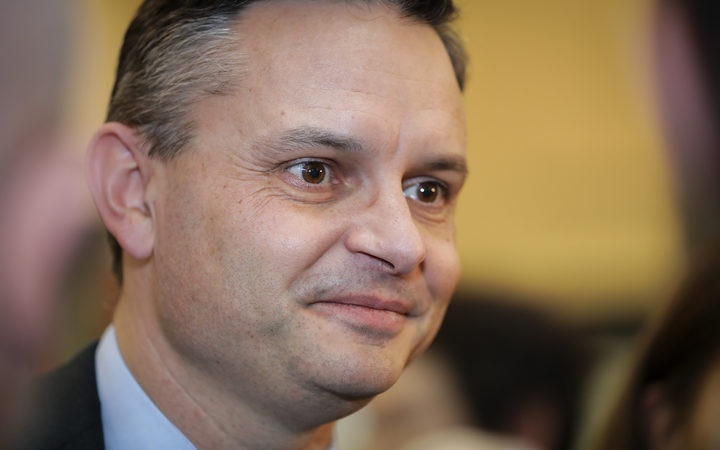Trees still best short term option on emissions - Climate Change Minister James Shaw
The government won't change the way forestry is used to offset carbon dioxide emissions despite advice by the Parliamentary Commissioner, Climate Change Minister James Shaw says.

James Shaw Photo: RNZ / Rebekah Parsons-King
Mr Shaw told Morning Report he agreed with Environment Parliamentary Commissioner Simon Upton's report that tree planting was only a short term fix but said it was the only option while ways of bringing down CO2 emissions were worked out.
"The emphasis has to be in bringing down your actual emissions not just in buying your way out by getting forestry offsets."
The commissioner's report, Farms, Forests and Fossil Fuels: The Next Great Landscape Debate said too much focus was being put on planting trees and businesses would be better off investing in new technology.
It concluded using trees as a carbon sink could only buy a little more time as CO2 lasted hundreds of years in the atmosphere but could be quickly released from trees at the end of their life or in the event of fires.
Mr Shaw said the government would stick to the strategy of allowing people to use trees to offset CO2 emissions they can't bring down.
"It buys us time to work out how to bring down our gross emissions ... and also to develop other solutions for longer term storage."
Longer term measures under way were changes to the Emissions Trading Scheme (ETS) to introduce a cap on emissions, which had been rising in the lifetime of the scheme, Mr Shaw said. The green investment fund set up last year was starting to direct investment towards the low carbon economy and, in transport, work was under way to to shift $14bn into public transport, walking and cycling.
"We're estimating that [emissions] will peak some time in the mid 2020s and decline from that point on."
"It could take that long, and that's why planting trees in the near term is the best option we've got."
The Parliamentary Commissioner's report report urged a reduction of net emissions of fossil carbon to absolute zero in the second half of the century, choosing 2075 as his preferred date.
New Zealand had emitted 35 percent more CO2 in 2016 compared to 1990, the report said.
It also said while forest carbon sinks might not work for CO2, they may be effective for methane and nitrous oxide.



 Binoy Kampmark: Gallic Stubbornness - France, Netanyahu And The ICC Arrest Warrants
Binoy Kampmark: Gallic Stubbornness - France, Netanyahu And The ICC Arrest Warrants Ramzy Baroud: ‘Genocide’ vs ‘Bigger Genocide’ in Gaza - Time to Decolonize Our Minds
Ramzy Baroud: ‘Genocide’ vs ‘Bigger Genocide’ in Gaza - Time to Decolonize Our Minds Binoy Kampmark: The ABC’s Colonel Blimp - Why Kim Williams Misunderstands Joe Rogan
Binoy Kampmark: The ABC’s Colonel Blimp - Why Kim Williams Misunderstands Joe Rogan Martin LeFevre - Meditations: A Meditation On Noise And Silence
Martin LeFevre - Meditations: A Meditation On Noise And Silence Gordon Campbell: On What’s Wrong With The Treaty Principles Bill
Gordon Campbell: On What’s Wrong With The Treaty Principles Bill Ramzy Baroud: No More 'Deals’ - What Palestinians Want And Will Fight To Achieve
Ramzy Baroud: No More 'Deals’ - What Palestinians Want And Will Fight To Achieve 